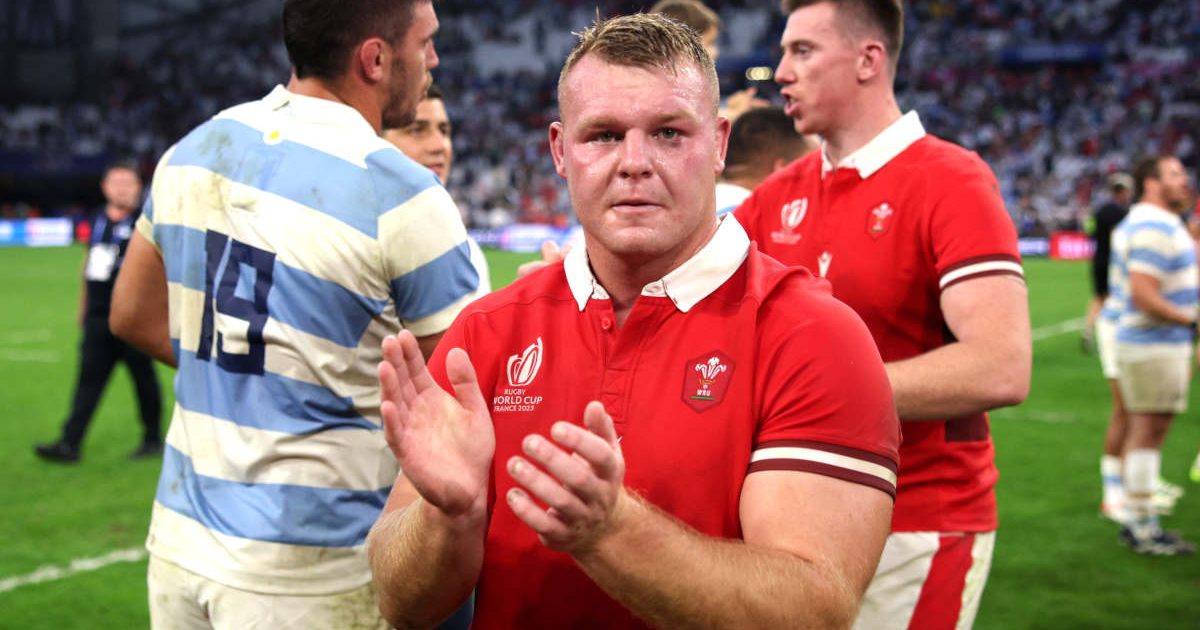Dewi Lake suggests major change to Welsh overseas rule

Wales hooker Dewi Lake has questioned the Welsh Rugby Union’s overseas rule that is in place, suggesting an alternative that is based on time served with a region.
As it stands, any capped player with fewer than 25 caps cannot play outside of Wales and continue to represent the national team. But Wales’ World Cup co-captain feels this does not necessarily represent a player’s service to Welsh rugby, and believes time spent playing or appearances for a region are a better indication.
Lake used Cardiff’s 35-year-old back row Josh Turnbull as an example who would fall under the 25 cap threshold, with 13 caps, should he move abroad, but has almost two decades-worth of service to Llanelli and Cardiff in the bank.
“I think it’s in place for time served in Welsh rugby,” the Ospreys hooker said on the Sportin Wales podcast.
“Where you’ve come through an academy, where coaches have put a lot of time into you, and then leave and then leave without giving it back to that club.
“Maybe it’s something you could do over time served for a club. If you came through an academy but you played in Welsh rugby and a Welsh region for a certain amount of years or games, or something like that, rather than an international cap rule.
“Some boys never get the opportunity to get a single cap, let alone 25.
“Look at Turnbull, he’s not got 25 caps, but he’s got 250 URC appearances, or something like that. And are you going to say he’s not got time served in Welsh rugby?
“The bloke has been an outstanding servant to Welsh rugby and to Cardiff and Scarlets and his regions. Yet he wouldn’t be eligible for Wales if he was to move elsewhere. He’s served his time to Welsh rugby, he’s been class for Welsh rugby.
“It’s probably the cap thing that’s tough to get past. You understand people wanting to have people to give back to their club or region if their academy has put their time into them. But it stops a lot of opportunity for boys to play elsewhere, in France, Japan or England.
“Sometimes it hinders the national team. You’d think as a national team you’d want your best players all the time, and sometimes they’re not available to you because of a rule you’ve got in place, which means they’re not eligible.”

























